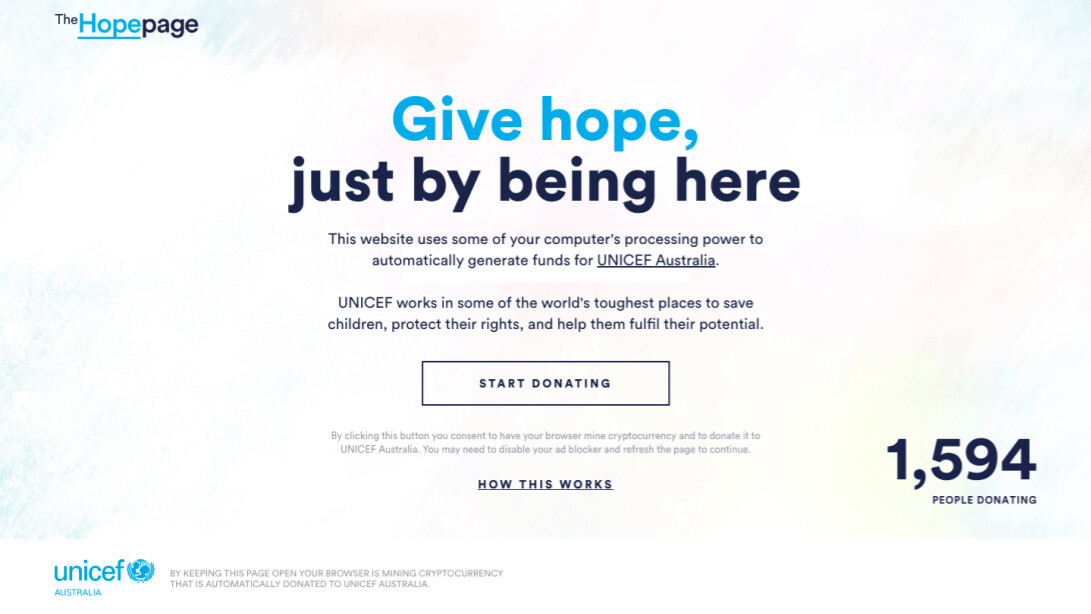
UNICEF Australia wants you to fund its charitable missions using your computer’s processing power.
The UN program that provides humanitarian and developmental assistance to children and mothers in developing nations has now launched The Hope Page, which allows the users to donate to its cause by mining cryptocurrency.
The Hope Page uses Coinhive’s opt-in version that gives the users an option to mine Monero for the website they are visiting.
When you’re on Hope Page, your web browser uses your computer’s processor to solve cryptocurrency algorithms. You can select how much processor power you want to donate to this task — between 20 to 80 percent.
Coinhive has previously faced heat for running a malware epidemic that affected more than 50,000 websites — the crypto-jacking software allowed the websites to mine cryptocurrency using their visitor’s computing power without their consent.
The cryptocurrency mining service gained some legitimacy when it rolled-out the opt-in feature that ensured that mining won’t activate until the user specifically choses to do so. This allowed such services to be seen as a better ad-free alternative to existing revenue models for websites.
Now that UNICEF has integrated their software for a humanitarian cause, this will likely lead them further legitimacy and lead to greater acceptance of their services.
The UNICEF initiative’s website gives instructions on how the mining works, and gives assurance that ‘mining is perfectly safe for your computer’:
The longer you stay on the page and the more processor power you donate, the more algorithms get solved, which earns cryptocurrency. Mining is perfectly safe for your computer. If you’re ever worried about power consumption, turn down the amount of processing power you’re donating.
The cryptocurrency is automatically donated to UNICEF Australia and is turned into real funds that reach children through life-saving supplies like safe water, therapeutic food and vaccines. Turn the Hopepage into your homepage to give every day.

This is not the first time that UNICEF is utilizing cryptocurrency mining to raise funds.
Earlier in February, it launched Chaingers.io to raise funds for Syrian children by borrowing gamers’ CPU power to mine Ethereum.
The project has managed to raise €1,002 so far, from 11,013 contributors, as per the Chaingers website.
While that is not a lot of money to be raised for an organization of the stature of UNICEF, it serves as a good pilot program.
But as Salon’s and The Pirate Bay’s foray into crypto-mining shows, we’re still a long way from adopting such technologies as a viable revenue model alternative – or a pleasant user experience.
[H/T Bad Packets Report]
Get the TNW newsletter
Get the most important tech news in your inbox each week.





